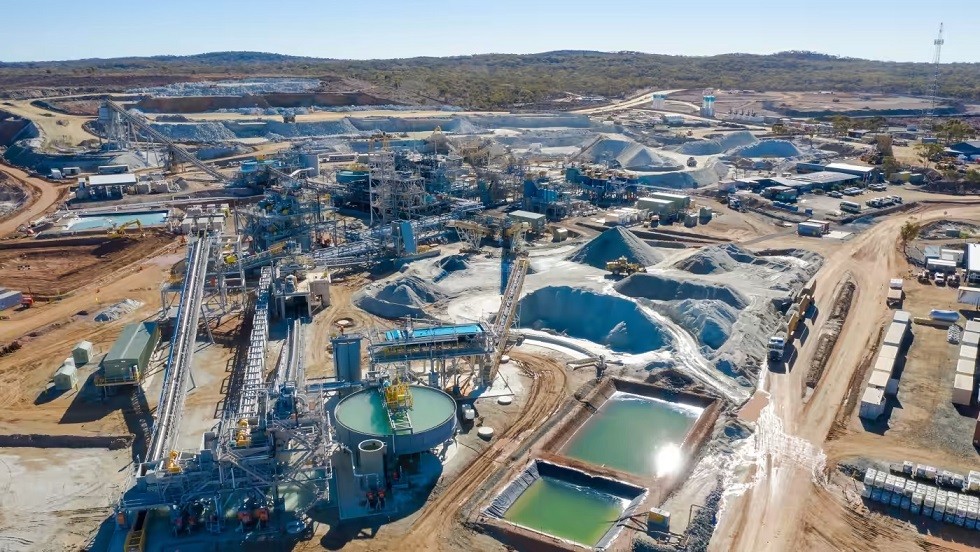 |
| China is increasing its stakes in lithium mines around the world. Pictured is the Mount Marion lithium project in Western Australia, where Chinese company Ganfeng Lithium has a stake. (Source: Ganfeng Lithium) |
Sourcing around the world
China's quest to secure its metals supply is driving the country to buy stakes in mines around the world, according to The Wall Street Journal .
China has long dominated lithium refining. But in the face of growing opposition in the West, Chinese companies are aggressively trying to gain a larger share of the world’s supply of the metal, by increasing their stakes in mines around the world.
It’s a risky strategy. China is spending billions of dollars to buy stakes in countries with a history of political instability. Projects often face opposition, regulatory delays and even cancellation.
However, if Beijing succeeds, it could secure access to a third of the world's needed lithium mine production capacity by 2025.
Lithium, a soft, silvery metal, is an ingredient in the lithium-ion batteries that power electric vehicles and smartphones. By the end of the decade, demand for lithium could outpace supply by about 300,000 tons, according to Benchmark Mineral Intelligence, a London-based consultancy.
China’s push to secure more of the world’s lithium comes amid concerns that its booming electric vehicle industry could struggle to access supplies as tensions with the U.S. and its allies rise. Canada and Australia, which hold the world’s largest lithium reserves, have recently blocked new Chinese investment over national security concerns.
China, which has just 8% of the world's lithium reserves, has no choice but to do so, said Susan Zou, vice president of Norway-based energy consultancy Rystad Energy.
Chinese companies have spent $4.5 billion over the past two years to buy stakes in nearly 20 lithium mines, mostly in Latin America and Africa, according to data compiled by Bloomberg.
These include investments in countries like Mali and Nigeria – which face security threats from terrorism – and Zimbabwe, Mexico, Chile – which are trying to gain more control over their mineral resources.
A challenging move
In December 2022, Zimbabwe imposed a ban on the export of unprocessed lithium, forcing foreign companies to process it locally. In February, the Mexican government signed a decree to accelerate the nationalization of the country's lithium reserves. In April, Chile's president proposed that private companies would have to partner with a state-owned company if they wanted to mine lithium in the country.
Chile, along with Bolivia and Argentina, are discussing the creation of a lithium alliance, similar to that of the Organization of the Petroleum Exporting Countries (OPEC).
Bolivia, which enshrines the nationalization of its mineral resources in its constitution, is one of the countries where China is investing heavily. The country has about a fifth of the world’s lithium reserves, but has a history of canceling lithium deals with foreign companies.
In Potosi, a region that is home to some of Bolivia’s salt mines, many residents have been wary of outsiders seeking to exploit their resources. In 2019, a lithium mining deal with a Chinese company stalled after then-President Evo Morales, who had supported the project, was ousted.
That same year, Bolivia struck another deal between state-owned lithium company Yacimientos de Litio Bolivianos, or YLB, and a German company after prolonged protests by locals demanding higher royalties from any subsequent lithium sales.
However, Chinese companies are pushing ahead with new projects in the country. In January 2023, China's Contemporary Amperex Technology Co. Ltd. (CATL), the world's largest battery maker, said it was leading a consortium in a joint venture with YLB.
The Potosi Civic Commission, a coalition of unions and social organizations, criticized the lack of transparency in the selection process. Bolivia required participating companies to write proposals and demonstrate their capabilities, but the results were never made public.
Lithium experts say the joint venture is unlikely to meet its target of producing 25,000 tonnes of battery-grade lithium carbonate (Li2CO3) by 2024.
Mining won't even begin until the government passes new legislation allowing foreign companies to participate in lithium mining, said Diego von Vacano, a professor of political science at Texas A&M University and a former adviser to the Bolivian government.
Choose a win-win cooperation
At an annual meeting of lawmakers in March, Chinese President Xi Jinping criticized the chaotic nature of China's lithium rush and called on Chinese companies to better understand the market they are entering before investing more.
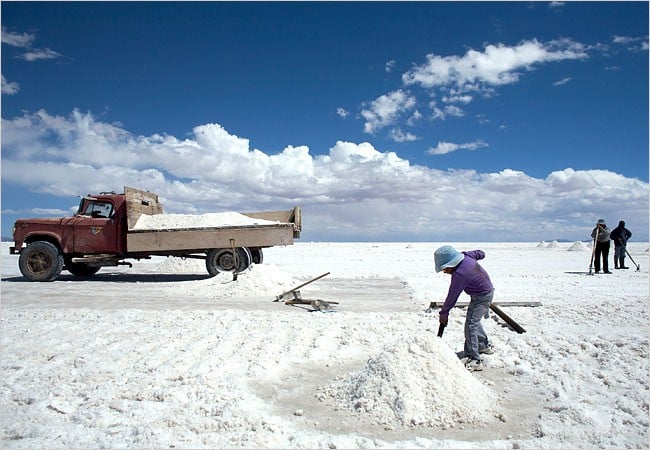 |
| Bolivia has the world's largest lithium reserves. (Source: New York Times) |
Despite the challenges they face, companies in the world’s second-largest economy have advantages over their Western counterparts. CATL, for example, is a battery giant with government backing and a strong network of companies along the supply chain.
“If anyone can do it, it’s the Chinese companies,” said Emilio Soberón, an analyst at minerals consultancy SFA Oxford.
Developing countries that prefer to work with Chinese companies are primarily interested in securing a steady supply of raw materials rather than simply extracting them at low cost and selling them at high prices, analysts say. This means they can guarantee a steady source of income for host countries.
Chinese companies have also sought to attract investment as a way to help these countries develop. At a signing ceremony in January, Bolivian President Luis Arce said the CATL-led consortium would invest more than $1 billion in the first phase of the project, which will be used to build infrastructure, including roads and electricity.
Sinomine Resources Group, which has acquired a lithium mine in Zimbabwe for $180 million, promises to create more than 1,000 new jobs and improve local infrastructure such as electricity, roads and bridges.
In fact, Chinese companies are seen as obvious investment partners in cash-strapped Zimbabwe, said Jee-A van der Linde, senior economist for Africa at Oxford Economics. Many Western companies have withdrawn their assets from Zimbabwe, a country that has been under U.S. and EU sanctions for more than two decades, but Chinese companies are less deterred by such concerns.
Newcomers looking to establish themselves in Africa can tap into a long-standing network of Chinese companies and workers operating in the region.
Australian mining company Prospect Resources has sold its 87% stake in the Arcadia hard-rock lithium mine in Zimbabwe to China's Zhejiang Huayou Cobalt for $378 million in April 2022.
The Chinese have dominated the operating environment in Zimbabwe, just as they have in many other African countries, said Sam Hosack, CEO of Australia's Prospect Resources.
The real risk for Chinese companies in the lithium boom may be financial. Some analysts point out that in the mid-2000s, when commodity prices were soaring, Chinese companies spent money to build up long-term supplies of commodities like iron ore or aluminum, then sold them when prices fell.
The same scarcity mindset now pervades policy discussions around critical minerals, potentially setting the stage for another round of questionable investment, said Gabriel Wildau, CEO of consulting and communications firm Teneo.
Fueled by surging demand for electric vehicles in China, lithium prices have surged more than 500% over the past two years but have fallen back this year to less than half their previous record high.
Source


![[Photo] Readers line up to visit the photo exhibition and receive a special publication commemorating the 135th birthday of President Ho Chi Minh at Nhan Dan Newspaper](https://vphoto.vietnam.vn/thumb/1200x675/vietnam/resource/IMAGE/2025/5/17/85b3197fc6bd43e6a9ee4db15101005b)



![[Photo] More than 17,000 candidates participate in the 2025 SPT Competency Assessment Test of Hanoi National University of Education](https://vphoto.vietnam.vn/thumb/1200x675/vietnam/resource/IMAGE/2025/5/17/e538d9a1636c407cbb211b314e6303fd)
![[Photo] Prime Minister Pham Minh Chinh chairs meeting on science and technology development](https://vphoto.vietnam.vn/thumb/1200x675/vietnam/resource/IMAGE/2025/5/17/ae80dd74c384439789b12013c738a045)





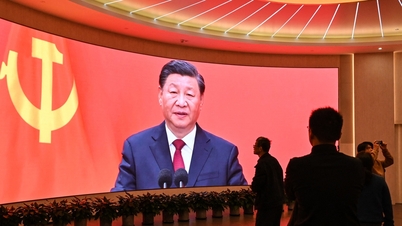

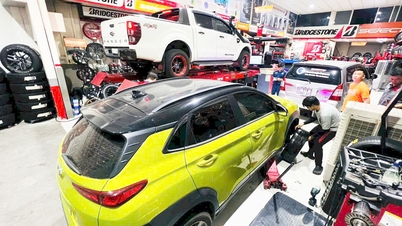

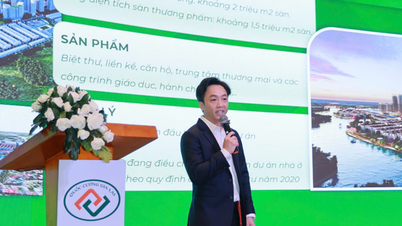




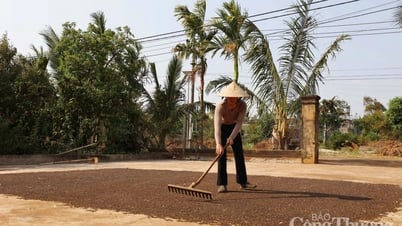


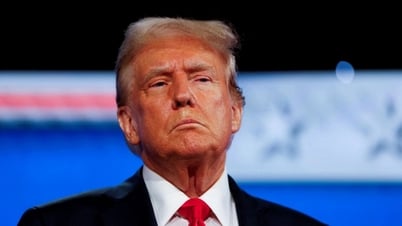





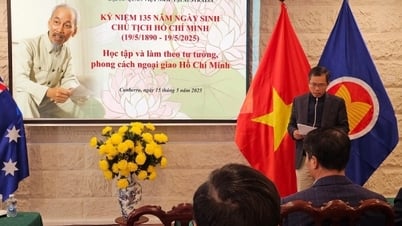
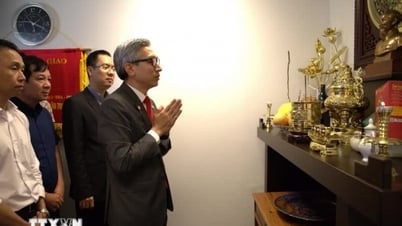
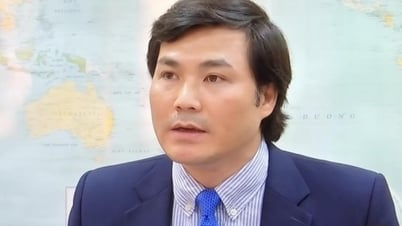

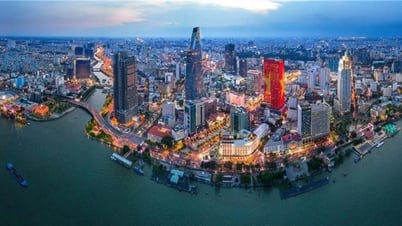
![[Photo] Nearly 3,000 students moved by stories about soldiers](https://vphoto.vietnam.vn/thumb/1200x675/vietnam/resource/IMAGE/2025/5/17/21da57c8241e42438b423eaa37215e0e)







































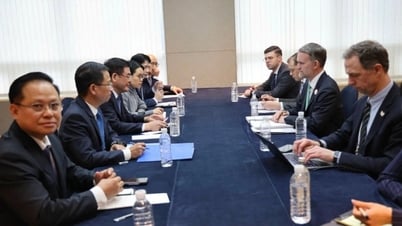
















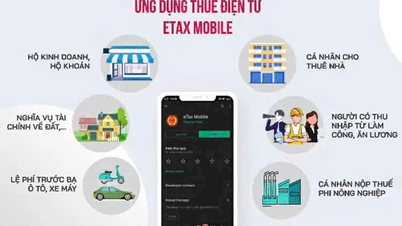

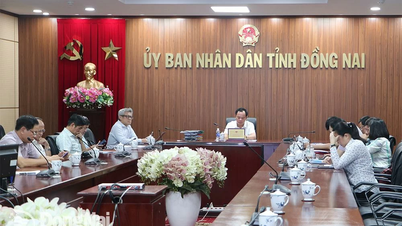










Comment (0)